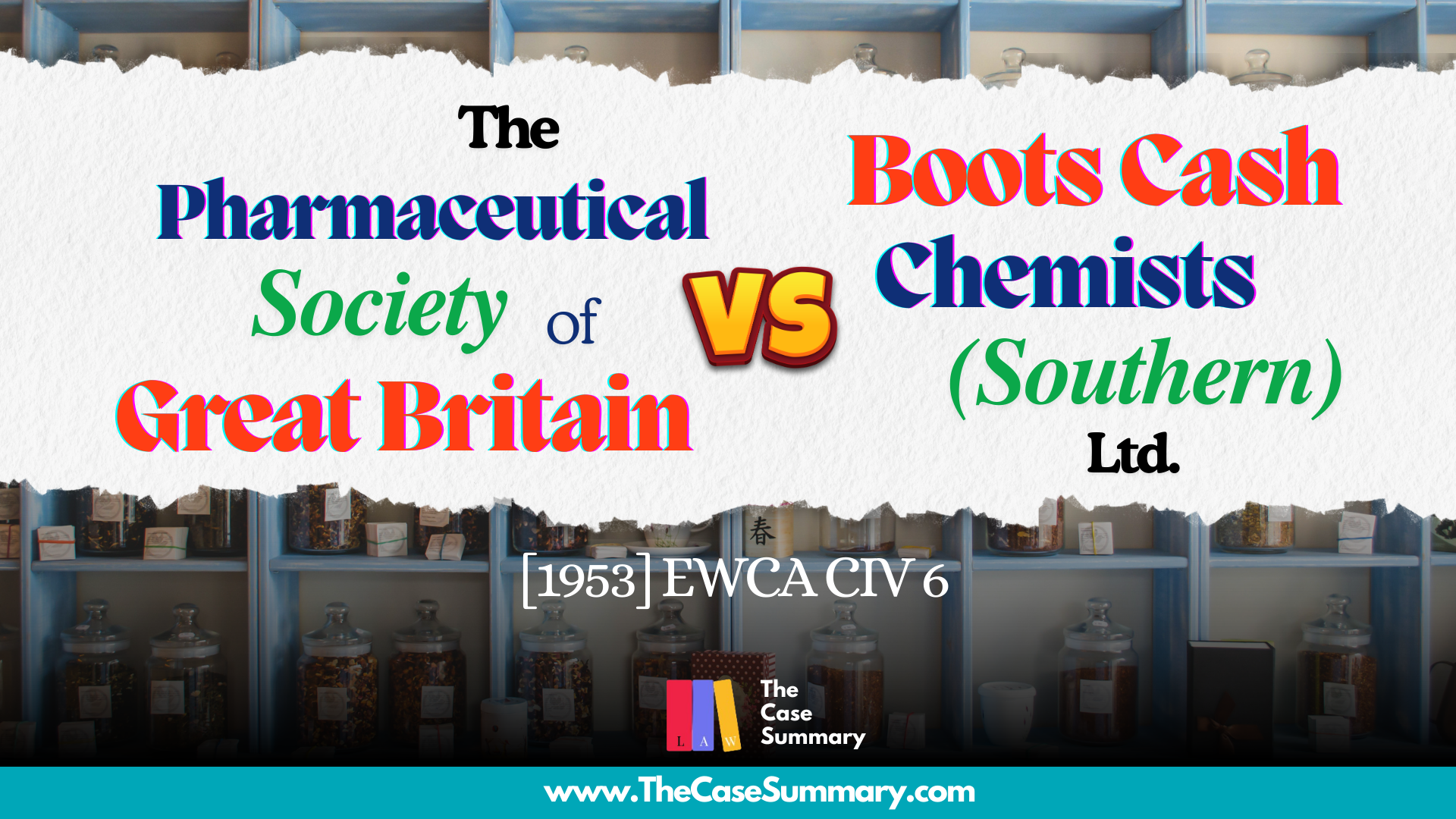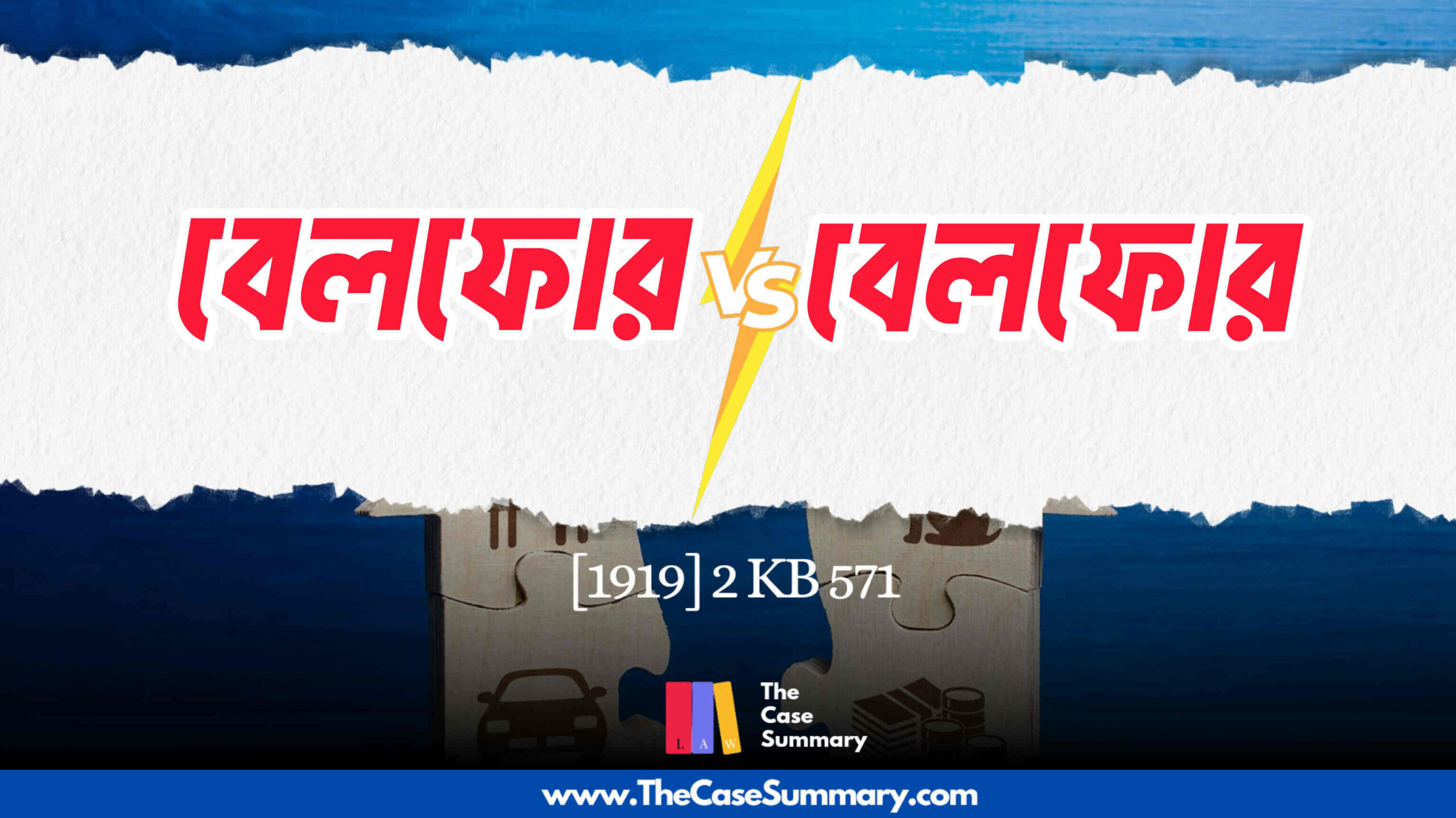The Pharmaceutical Society of Great Britain vs Boots Cash Chemists (Southern) Ltd.
Reference : [1953] EWCA Civ 6
Jurisdiction : England and Wales
Plaintiff : The Pharmaceutical Society of Great Britain
Defendant : Boots Cash Chemists (Southern) Ltd.
Facts :
The Pharmaceutical Society of Great Britain was empowered by Section 25 of the Pharmacy and Poisons Act, 1933 to take reasonable steps to ensure that the provisions of Part I of the Act were enforced.
Section 18(1)(a)(iii) of the Act prohibited the sale of any poison included in Part I of the Poisons List without the supervision of a registered pharmacist.
When the defendant introduced a new ‘self-service’ method of selling drugs where the customers would pick whatever they needed from the shelves themselves and pay at the counter, they were sued by the Pharmaceutical Society for violation of the aforementioned prohibition in Section 18(1)(a)(iii) of the Act. The plaintiff argued that the “display of goods” in a self-service system would be sufficient to be considered as an “offer”. And as soon as the customer picks up the goods, it would signal an “acceptance” of that offer, binding both the buyer and the seller into a contract. There is no supervision of a registered pharmacist in this process as he would be at the counter, still unaware of the products picked up by the customer. Thus, according to the plaintiff, this system left a potential risk of listed poisons being sold without the supervision of a registered pharmacist.
Issues :
- Is the “display of goods” in a self-service store considered an “offer” or an “invitation to treat”?
- When would a contract be completed in a self-service store?
Decision :
The High Court
The Queen’s Bench Division of the High Court decided in favour of the defendant as the Court considered the display of goods in a self-service store to be an invitation to treat as opposed to an offer and saw no difference from a normal store merely because a self-service was advertised.
The Court of Appeal
The Court of Appeal supported the High Court’s decision in favour of the defendant citing that it would not be reasonable to consider the display of goods to be an offer. The Justices mentioned the problems that would likely arise if a customer were to change his mind after picking up something from the shelf if his picking of the goods is enough to form a binding contract.
Lord Justice Birkett stated, ❝I decide, first that there is no sale effected merely by the purchaser taking up the article. There is no sale until the buyer’s offer to buy is accepted by the acceptance of the money, and that takes place under the supervision of a pharmacist.❞ Thus, the Court of Appeal concluded that the display of goods in a self-service store is an invitation to treat, and when the customer offers payment at the counter, the acceptance of that payment by the seller would mark the formation of the contract.
In this case, as the defendant had stationed a registered pharmacist at the counter, they did not violate the provisions of the Pharmacy and Poisons Act of 1933 as their system was sufficient for a registered pharmacist to oversee the sale of the listed poisons. Thus, the appeal was dismissed.
Relevant Laws :
- The Pharmacy and Poisons Act, 1933 (UK)
Author :
1. S.M. Monzur Morshed
Note: The Case Summary is a platform by the law students, for the law students. We aim to summarize the facts and decisions of various important cases in both Bangla and English with utmost caution. However, this platform is in no way a replacement for going through the complete judgements by the law students and we discourage any learner from relying on case summaries alone. Thank you



